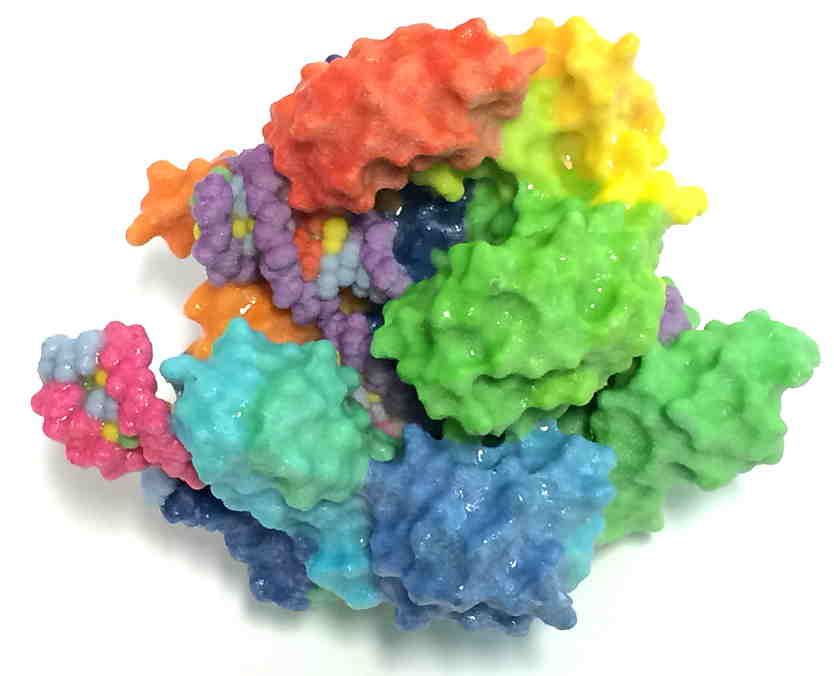First gene-editing treatment injected into the blood reduces toxic protein for up to 1 year
By Jocelyn Kaiser,
Science
| 03. 01. 2022
Cas9 from CRISPR from NIH, CC BY-NC 2.0
The first team to disable a disease gene directly in a person through an infusion of the genome editor CRISPR reported yesterday that levels of the toxic protein made by the gene dropped as much as 93% for up to 1 year. The researchers hope the long-term reduction means patients in the clinical trial will soon show clear improvement in their nerve symptoms and that these benefits will persist for an extended period.
“It is quite remarkable that this first [intravenous] CRISPR-based gene-editing effort has been so successful,” says gene therapy researcher Terence Flotte of the University of Massachusetts Medical School, who was not involved with the study. “This demonstrates great potential for the power of this platform clinically.”
People who have inherited a gene mutation responsible for a condition known as transthyretin (TTR) amyloidosis can develop nerve pain, numbness, and heart failure as adults. The genetic defect results in buildup in nerves and organs of a misfolded version of TTR, a protein made by the liver. Last year, the companies...
Related Articles
By Diaa Hadid and Shweta Desai, NPR | 01.29.2026
MUMBRA, India — The afternoon sun shines on the woman in a commuter-town café, highlighting her almond-shaped eyes and pale skin, a look often sought after by couples who need an egg to have a baby.
"I have good eggs,"...
By George Janes, BioNews | 01.12.2026
A heart attack patient has become the first person to be treated in a clinical trial of an experimental gene therapy, which aims to strengthen blood vessels after coronary bypass surgery.
Coronary artery bypass surgery is performed to treat...
By Staff, ScienceDaily | 01.05.2026
Scientists at UNSW Sydney have developed a new form of CRISPR technology that could make gene therapy safer while also resolving a decades-long debate about how genes are switched off. The research shows that small chemical markers attached to DNA
...
Following a long-standing CGS tradition, we present a selection of our favorite Biopolitical Times posts of the past year.
In 2025, we published up to four posts every month, written by 12 authors (staff, consultants and allies), some in collaboration and one simply credited to CGS.
These titles are presented in chronological order, except for three In Memoriam notices, which follow. Many more posts that are worth your time can be found in the archive. Scroll down and “VIEW...




